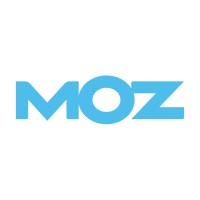How does employee appreciation lead to business results?
Recognition done right is more than a feel-good initiative. Appreciating frontline workers directly impacts employee retention, employer brand, and business performance.
But not all recognition programs work. From poor implementation to lack of follow-through, even well-intentioned efforts can fall flat.
Session Recap
The conversation opened with the observation that while many organizations claim to value recognition, their efforts often fail to reach deskless and frontline workers in ways that feel authentic or equitable.
One major theme was the disconnect between what leadership believes is happening with recognition and the actual employee experience.
Organizations that get it right have clear, consistent processes for recognition, ones that are tied to performance, values, and feedback loops that extend beyond the corporate office. Additionally, when recognition is tracked properly, it provides leaders with data they can use to reinforce positive trends and address gaps.
Another key theme was the business case for investing in recognition. When done right, recognition programs can directly support retention, improve team morale, and contribute to productivity.
However, the panelists also acknowledged that recognition cannot make up for poor culture. Additionally, recognition programs start with leaders— a shoutout or manager feedback can go a long way, especially in environments where those acknowledgments are rare.
Before peer-to-peer recognition can be implemented, employees must first receive regular recognition from their direct managers and leadership.
Actionable Takeaways
- If you haven’t already, start tracking your recognition program like you track other business metrics. It should be visible and reportable.
- Evaluate your current tools and systems: are they actually built for your frontline teams? If not, make recognition accessible to deskless and frontline teams via digital solutions that don’t rely on email or Slack.
- Spend time with front line employees to understand the challenges of their job, and what kind of recognition would be most meaningful to them.
- Empower managers with simple, frequent ways to give meaningful recognition.
- Use recognition data to spot trends and identify areas of the business that may need more support.
- A rewards program needs some resources to be effective. For their reason, starting with a section of the company is better than including all workers, but not providing any significant rewards.
- Make sure recognition programs don’t just reward high performers but also acknowledge consistent, quiet excellence. It doesn't have to be complicated, a sincere thank you from a manager still goes a long way.
Meet the Panelists:
Tracie Sponenberg, Fractional CPO, Speaker, and HR Thought Leader
Former Chief People Officer with 25 years of experience leading people strategy across industries, Tracie now advises organizations on building culture and driving business results.
Kwesi Thomas, Executive HR Advisor
With over a decade of experience at global tech companies like Shopify and Blackberry, Kwesi brings a cross-functional approach to building scalable, people-first programs.
Facilitated by Phil Strazzulla, Founder of SelectSoftware Reviews
Download the Session Takeaways
.png)
Bonus: Get HR Software Matches — Fast, Free, and Personalized
Trying to find the right HR software is a difficult and time consuming process, until you partner with SSR.
SSR’s free Advisor service gives you expert, unbiased HR Software recommendations tailored to your team’s needs. Tell us what you’re looking for, and we’ll help you cut through the noise and find the right fit.



%20%5BNEW%5D%20(5).png)






%20%5BNEW%5D%20(13).png)
%20%5BNEW%5D%20(10).png)
%20%5BNEW%5D%20(10).png)













